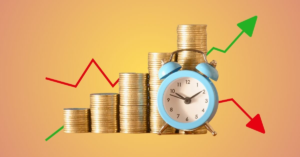Introduction
LVMH Moët Hennessy Louis Vuitton (LVMH) is a global leader in the luxury goods market, encompassing a vast array of prestigious brands across various sectors, including fashion, cosmetics, and wines & spirits. As one of the most valuable companies in Europe, investing in LVMH stock has become increasingly attractive for investors seeking exposure to the luxury sector. In this article, we will explore how to buy LVMH stock, the factors influencing its price, and tips for prospective investors.
Understanding LVMH
Founded in 1987 through the merger of Louis Vuitton and Moët Hennessy, LVMH is a conglomerate that operates over 75 distinct brands, including Christian Dior, Fendi, and Dom Pérignon. The company is known for its commitment to quality, innovation, and brand heritage, making it a cornerstone of the luxury market.
LVMH is publicly traded on the Euronext Paris exchange under the ticker symbol MC. With a market capitalization exceeding €400 billion, it consistently ranks among the top luxury brands globally.
Why Invest in LVMH Stock?
- Strong Financial Performance: LVMH has demonstrated robust revenue growth and profitability over the years, even during economic downturns. The company’s diverse portfolio helps mitigate risks associated with individual brand performance.
- Growth Potential: The luxury market continues to expand, particularly in emerging markets such as China and India. LVMH’s strategic focus on these regions positions it well for future growth.
- Dividends: LVMH has a history of providing dividends to its shareholders, making it an attractive option for income-focused investors.
- Brand Resilience: The enduring appeal of luxury brands often leads to stable demand, even during economic fluctuations.
Steps to Buy LVMH Stock
1. Choose a Brokerage Account
To buy LVMH stock, you need to open a brokerage account that allows trading on the Euronext Paris exchange. Here are some popular options:
- Online Brokers: Platforms like Interactive Brokers, eToro, and Degiro allow investors to trade international stocks, including LVMH.
- Traditional Brokerage Firms: Firms like Charles Schwab and Fidelity may also offer access to international markets, though they may charge higher fees.
2. Fund Your Account
After selecting a brokerage, fund your account. This typically involves linking a bank account and transferring money. Be aware of any minimum deposit requirements and potential fees.
3. Research LVMH Stock
Before making an investment, conduct thorough research on LVMH. Review its financial statements, recent news, market trends, and analyst ratings. Understanding the company’s fundamentals will help you make informed decisions.
4. Place Your Order
Once you feel confident in your decision to buy LVMH stock, you can place an order through your brokerage platform. There are generally two types of orders you can choose from:
- Market Order: This order buys the stock at the current market price. It’s executed immediately, ensuring you acquire the stock quickly.
- Limit Order: This order allows you to specify a price at which you’re willing to buy the stock. If LVMH shares reach that price, your order will be executed.
5. Monitor Your Investment
After purchasing LVMH stock, regularly monitor your investment. Keep an eye on the company’s performance, news, and any factors that might affect the luxury market. Consider setting up alerts for significant price changes or news releases.
Factors Influencing LVMH Stock Price
Several factors can impact LVMH’s stock price:
- Economic Conditions: The luxury market is sensitive to economic changes. Economic growth generally boosts luxury spending, while downturns can negatively affect sales.
- Consumer Trends: Shifts in consumer preferences, such as the growing demand for sustainable luxury products, can influence LVMH’s brand strategy and stock performance.
- Geopolitical Events: Trade policies, tariffs, and international relations can impact LVMH’s supply chain and market access, affecting its profitability.
- Currency Fluctuations: As a global company, LVMH is exposed to foreign exchange risks. A stronger euro can impact revenue from international markets.

+ There are no comments
Add yours